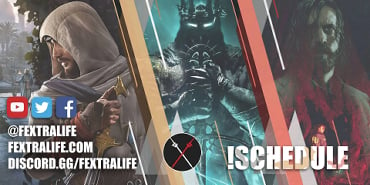The Pantheonus is a piece of Story and Lore found in the Tree of Skill.
In ancient days, forest tribes held gods too numerous to mention, varying from tribe to tribe. A single tree in a single forest may be three different gods to three different tribes, and with little to no written history among them all, there was no structure to their beliefs.
- Pantheonus 1:1-2
Some embraced this, holding a sort of spiritual animism as their truth. When men civilized themselves, shedding huts and furs for stone villages and linens, a common pantheoon was codified: what is known now as the Old Gods.
- Pantheonus 1:3-4
The Old Pantheon contained 12 gods, typically:Diadel, goddess of sky, Azredak, god of bloodletting,
- Pantheonus 1:5-6
Oemar, god of the harvest, Pyrabella, goddess of fertility,
- Panthenous 1:7-8
Numen, god of dark things, Grull, god of forest creatures,
- Pantheonus 1:9-10
Imrios, god of the sea, Ellenestria, goddess of luck,
- Pantheonus 1:11-12
Oporos, god of health, Murlik, god of the dream world,
- Pantheonus 1:13-14
Tartilia, goddess of the dead world, and Devara, goddess of light.
- Pantheonus 1:15-16
In most circles, Devara was esteemed as the mother of all gods, commanding the greatest shrines and most devoted clerics.
- Pantheonus 2:1
In time the lesser gods of the Old Pantheon fell in stature, and the vast majority of codified Old Pantheon worship simply fell under the umbrella known as Devara's Light.
- Pantheonus 2:2
The New Gods, also known as The Three, emerged through monarchy and dynasty. Devara's made equal with that of two new dieties drawn from Askarian royalty: The King and The Knight, divine incarnations of Askarian men.
- Pantheonus 2:3-4
King Ericho the Austere and Sir Amar the Proper are credited with uniting all of Askaria, a decades-long conquest that began under the King Ericho's father, Relon the Bear.
- Pantheonus 2:5
Askaria's successful campaigns of war and conquest led to The Three becoming the most universally held gods, though forest tribes in the eastern continent are known to still hold the ancient tribal gods, which now fell under the monicker of Stone Roots.
- Panthenous 2:6
The old gods remained popular in the southern continent, as well as in smaller nations, like Taenibir to the north and Kadanaia to the west.
- Pantheonus 2:7
Markdor, the mountainous nation in the western side of the northern continent, held its own pantheon, but its rulers became increasingly antagonistic toward the petty squabblings and state-sanctioned proseltyzing of the men of gods.
- Panthenous 2:8
Perhaps in response to Askaria's conquest for The Three, the Dorian Council of Steel declared the will of man to be greater than gods, and uniquely worthy of worship.
- Pantheonus 2:9
Ironically, this move led to its own codified system of faith and worship, with its own schools, clerics, tomes and songs all dedicated to extolling the will of man.
- Pantheonus 2:10
During The Three's rise of in popularity, mages and arcanists from Askaria and Liven began establishing a science around the art of channeling the elements of Fire and Sky, eventually forming Citadel, a stone tower deep in the woods of Liven.
- Pantheonus 3:1
Elementally attuned individuals would make pilgrimiages to the Citadel of Fire and Sky. A pilgrim to the Citadel would begin his study as an acolyte, devoting decades of study and discipline toward learning, mastering, and researching.
- Panthenous 3:2-3
Disciples of Fire and Sky can't be said to hold gods, new or old, as they restrict their study in the supernatural to experiments in spellcraft that can be documented and duplicated.
- Pantheonus 3:4
Healers of Fire and Sky, ever important in a stone tower fraught with flame-slinging acolytes, do call on some divinity to mend and heal, but they attribute this ability to a celestial element that must exist between Fire and Sky.
- Pantheonus 3:5
The Realm has some smaller cults and sects of some import. Sects of the old gods, for instance, often add or subtract from their accepted pantheons as tradition allows, and hold more reverence for gods other than Devara.
- Pantheonus 4:1
One such sect shed the entire original Old Pantheon to favor two nontraditional gods, Gilbael, god of wine, and Arxigal, god of visions, evenetually known simply as The Fool and The Prophet.
- Pantheonus 4:2

This guy should write a book.
6
+10
-1